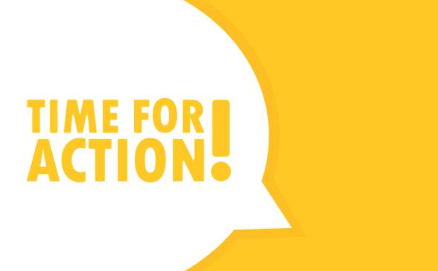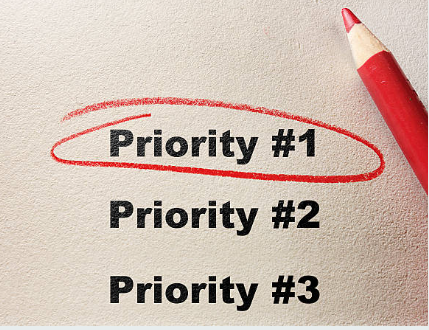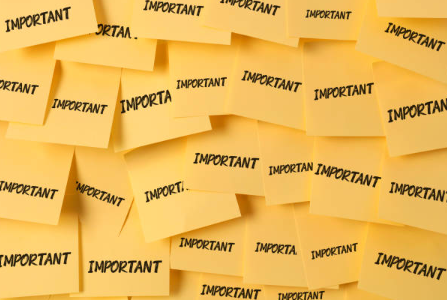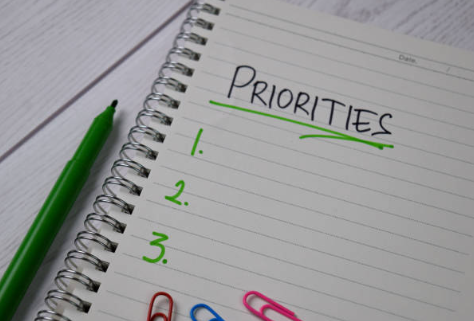Why Intentions are Important
Setting intentions is an important step towards goal-setting. Setting intentions is a way to embrace a positive mindset and support your goals from the inside out. Setting intentions means stating what you want to accomplish and committing to the journey.

Selfpause Affirmation App
Download the app to get 1,000’s of affirmation meditations and everything you need to write, record and listen to your own.
Goal setting

Setting intentions also helps you stay present in the moment. It is important to choose an intention that is realistic and attainable, but also feels good. Here are some ways to make your intentions feel good:
First, an intention is a way to put your emotions to work. By setting intentions, you can cultivate habits that will eventually become second nature. Another reason why intentions are important in goal-setting is that they’ll help you stay motivated. They can even increase your motivation and persistence.
Second, setting goals with an intention helps you avoid distractions. When you don’t have a clear idea of what you want to achieve, you might become distracted by people, things, and even your mood. Setting goals without a clear intention will lead you down a path you may not be prepared to follow.
Self-knowledge

Self-knowledge is the process by which we know and understand ourselves. We do this through the use of intentions. These are determinants of our behaviors over time and situations. When we have clear intentions, we can determine what behaviors we want to accomplish. We can set goals for ourselves and measure our progress towards those goals.
Self-knowledge is essential for healthy functioning. It helps us make informed choices about personal matters, such as romantic relationships, educational plans, career choices, and housing. It also helps us regulate our behavior. It also includes information about our values and goals. When we know ourselves well, we can make realistic choices about our future and choose what is best for us.
We can set our intentions when we are feeling stressed or reactive to our environment. By setting your intentions, you are more likely to become an observer of your circumstances, rather than reacting to them. This helps us achieve our goals more easily. But we must surrender ourselves to our intentions in order to create them.
Self-directedness

Setting intentions is an important part of self-directedness. Often, intentions are short-term, but you can also set them for the long-term. Intentions should be centered on a specific theme. For example, if you want to go fishing, set an intention to go fishing that day even if there are other things on your mind that may distract you. You can also set an intention to go shopping and decline it if you’d rather do it another day.
Self-directed learners are highly curious and are eager to explore new things. They view learning as a positive journey and acknowledge the yin and yang of learning. They also have a strong sense of self-efficacy – the belief that you can perform a task successfully.
Setting intentions is a powerful practice that requires you to believe in what you want and not be swayed by others. It is important to set intentions that align with your personal values and life purpose. Setting intentions can be a valuable tool in self-directedness and can help you navigate through difficult times.
Clarity

Clarity of intentions is a vital part of making positive changes in your life. The process of clarifying your intentions involves asking yourself questions such as: “What do I want from life?” and “How will I feel when I achieve that goal?” Clarity of intentions enables you to act with intention. By following through on your intentions, your life will be changed. Clarity of intentions also gives you a framework and roadmap for the changes you want to make. It’s important to refer to this map often. You can also commit it to memory so it becomes part of your conscious mind.
Clarity of intentions is an essential ingredient of effective strategic planning. Without it, your strategic plans will not be strategy driven and may not deliver the results you want. When your intentions are clear, it helps you make decisions in the most effective way and improves the process of evaluation. It also enables you to better demonstrate accountability.
People who have clarity of intentions feel decisive and have a laser-like focus. They are guided by one signal that doesn’t fluctuate. Moreover, the focus they have feels like a natural part of their being. They are confident in themselves and feel empowered. Their intentions are clearly reflected in their daily lives in the form of inner and outer guidance. It is also evidenced in how smoothly their actions unfold.
Structures to keep intentions

One of the most effective ways to keep intentions is by creating a structure. This structure should guide your actions from the time you write your intention. A structure should consist of three goals: one big goal and two smaller ones. These goals can be lighthouses that guide you through the exploration of your intention.
Benefits
Setting intentions can benefit you in many ways. First, by using intentions as a guide to your everyday life, you will create habits that will reflect your goals. If you are working on saving money for travel, you can use daily intentions to ensure you save money for it. Another benefit of setting intentions is that you can create a positive energy around your intentions.
Setting intentions is a powerful way to set yourself free from limiting beliefs and thoughts that can negatively affect your happiness levels. This practice has been proven to make people happier and more successful. Intentions can also help you avoid thinking about problems and focus on how you feel in the moment. For example, if you set your intention to be more present in your life, you are more likely to experience feelings of fullness, joy, and presence. Your positive mindset will also help you to remove blocks and improve your productivity.
Our Top FAQ's
Intentions play a central role in decision-making and behavior because they reflect the reasons behind our actions and guide our choices. When we act with a specific intention, we are motivated to achieve a particular outcome or goal. Our intentions can also influence how we approach a task or situation, as well as how we interact with others.
Our intentions can significantly influence the outcomes of our actions. For example, if we have the intention to help someone, we are more likely to take actions that are supportive and beneficial to that person. On the other hand, if our intentions are self-serving or harmful, the outcomes of our actions may be negative or damaging.
We have some control over our intentions, but they can also be influenced by external factors such as our values, beliefs, emotions, and experiences. For example, if we are exposed to certain values or beliefs, they may shape our intentions and guide our actions. Similarly, our emotions can influence our intentions, as we may act with different intentions depending on how we feel.
Our intentions can have a big impact on our relationships with others. If we act with good intentions, we are more likely to build trust and strengthen our relationships. On the other hand, if our intentions are selfish or harmful, we may damage or strain our relationships.
It is possible to change our intentions, but it may require effort and self-reflection. We can change our intentions by examining our values and beliefs, and considering how our actions align with them. We can also try to develop more positive or altruistic intentions by practicing empathy and considering the perspective of others. Additionally, seeking guidance or support from others can help us change our intentions and make more positive choices.
